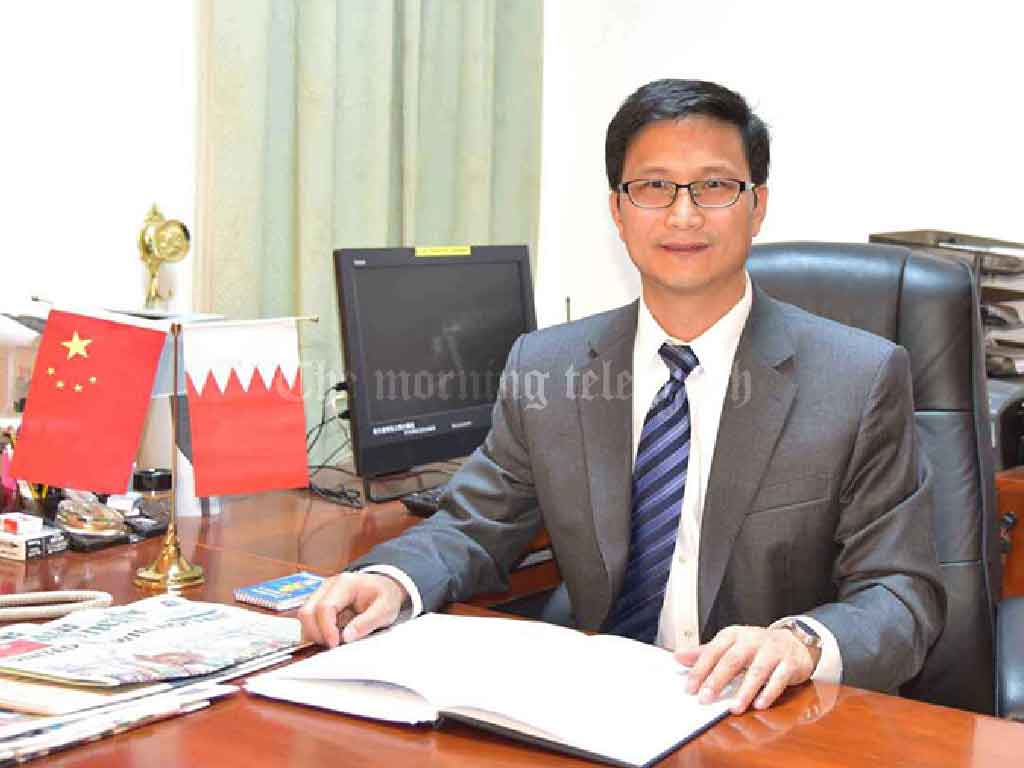
Chinese Ambassador to Sri Lanka, Qi Zhenhong, commended the Tamil community in Sri Lanka’s Northern Province for what he described as a “right decision” in their support of the National People’s Party (NPP) in the recent general election. His comments, made during a visit to the Northern Province shortly after the election, reflect significant political shifts in a region that has traditionally voted for Tamil ethnic parties. The NPP, a Marxist-leaning political alliance, secured five out of twelve seats in the Northern Province—an unprecedented victory for a major party with the backing of the Sinhala majority, signaling a break from the past.
Historically, Tamil voters in the North, who share strong cultural and religious ties with Tamil Nadu in India, have supported ethnic Tamil political leaders. In the 2024 election, however, a significant number of Tamils voted for the ruling party, marking a departure from their traditional voting patterns. Ambassador Zhenhong noted this as a reflection of a broader shift towards national unity. He praised the Tamil community for looking beyond ethnic affiliations and embracing the “bigger picture” of a unified future for Sri Lanka.
“I believe the Tamil community has made the right decision,” said Ambassador Zhenhong, referring to the NPP’s success in Jaffna and the Northern Province. “This shows that the Tamil community has transcended its traditions and embraced the bigger picture when looking to the future.” Zhenhong emphasized that the NPP’s success in the North represents a fundamental shift in Sri Lankan politics, where people from all ethnic and religious backgrounds are beginning to work together for a better future. The ambassador also remarked on a slogan he encountered during his visit to Point Pedro—“Unity in Diversity is the Strength of Sri Lanka”—which he felt encapsulated the spirit of the 2024 election. He expressed hope that this newfound unity would contribute to a more harmonious and prosperous future for the country.
The Ambassador’s remarks come at a time when Sri Lanka is grappling with foreign policy tensions, particularly regarding the increasing influence of China in the country’s Northern Province. Sri Lanka’s Northern region has long been a focal point for ethnic Tamil politics, and the shift in voting patterns reflects broader national trends that have implications for the island’s future. While Chinese investments have increased, Sri Lanka’s relationship with India remains sensitive, especially regarding concerns about Chinese involvement in the North and the security risks posed by Chinese-funded infrastructure projects.
The Ilankai Tamil Arasu Katchi (ITAK), the dominant Tamil party in the North, experienced a sharp decline in support in the 2024 elections, securing only two seats in the province, compared to six in the 2020 parliamentary elections. This decline further reinforces the trend of a broader political realignment in the region, with more Tamils shifting towards national parties like the NPP. This trend is being seen as a rejection of the ethnocentric politics that have dominated Tamil politics for decades.
Ambassador Zhenhong’s visit to the Northern Province highlights China’s increasing engagement with the region. China has invested in various projects in the North, including a sea urchin farming venture aimed at revitalizing the region’s struggling fishing industry, which has been severely affected by Indian bottom trawling practices. As a result, many northern fishermen have turned to alternative livelihoods such as sea cucumber farming. The Chinese government has also provided humanitarian aid, including dry rations, housing units, and fishing nets to support the local population.
Moreover, China has launched a scholarship program at the University of Jaffna, further solidifying its growing presence in the region. This support is seen as part of China’s broader strategy to strengthen ties with Sri Lanka, especially in the Northern Province, which has historically been marginalized in national politics.
China’s involvement in Sri Lanka, particularly in the North, has raised concerns from neighboring India. Indian officials have expressed unease over the growing Chinese footprint in the region, citing national security risks. In response to these concerns, Sri Lanka’s previous government suspended a renewable energy project awarded to a Chinese company after Indian officials raised security concerns. Similarly, Sri Lanka imposed a temporary ban on Chinese research vessels, which is set to expire next month. These tensions underscore the complex geopolitical dynamics that Sri Lanka faces as it navigates its relationships with both China and India.
In the context of these geopolitical complexities, Sri Lanka’s new government under President Anura Kumara Dissanayake is expected to adopt a careful approach to balancing its foreign relations. The shift in Tamil political allegiance to national parties like the NPP represents a broader political change, and it will be interesting to see how this affects Sri Lanka’s foreign policy in the coming years. The Chinese ambassador’s visit and comments suggest that China is keen to maintain and expand its influence in Sri Lanka, particularly in the Northern Province, where it sees opportunities for economic cooperation and development.
The future of Sri Lanka’s foreign policy, particularly in relation to China, will likely depend on how the country balances its national unity goals with the competing interests of regional powers. The recent election results and the growing involvement of China in the Northern Province suggest that Sri Lanka may be entering a new phase in its political and diplomatic evolution, one that emphasizes both national unity and international partnerships.




